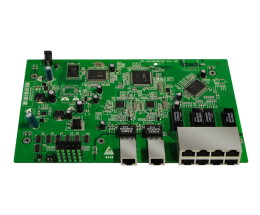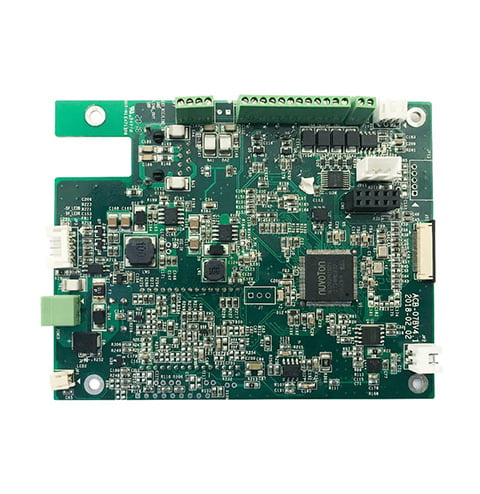PCB Assembly Melbourne: Top Services for Your Electronics Needs
Melbourne is a bustling city with a diverse range of industries, including electronic manufacturing. PCB assembly, or Printed Circuit Board assembly, is one of the key components of electronic manufacturing. PCB assembly is the process of attaching electronic components to a printed circuit board. This process is essential for the creation of electronic devices, including computers, smartphones, and other consumer electronics.

There are many companies in Melbourne that specialize in PCB assembly. These companies offer a range of services, including PCB manufacturing, PCB prototyping, and PCB assembly. Some of the most popular companies in Melbourne that offer PCB assembly services include Alfatron, ACD Digital, Precision Electronic Technologies, and Rush PCB. These companies offer a range of services, including PCB design, PCB fabrication, and PCB assembly. They also offer a range of PCB materials, including FR-4, polyimide, and Rogers.
Overview of PCB Assembly Services in Melbourne

Melbourne is a hub for electronics manufacturing, with many companies offering PCB assembly services. PCB assembly is an essential process in the production of electronic devices. It involves the assembly of electronic components onto a printed circuit board (PCB) to create a functional circuit.
PCB assembly services in Melbourne offer a range of services, including prototyping, low-volume production, and full-scale production. These services are essential for clients who want to test the functionality and design of their product before the final product is produced.
Many PCB assembly service providers in Melbourne use advanced equipment and software to create accurate and reliable prototypes. They also offer design services to help clients optimize their products for manufacturing.
Some PCB assembly service providers in Melbourne also offer turnkey solutions, which include the design, prototyping, and production of electronic devices. This allows clients to focus on other aspects of their business while the PCB assembly service provider handles the manufacturing process.
Overall, Melbourne offers a range of PCB assembly services to meet the needs of clients in various industries, from medical devices to consumer electronics. With its advanced equipment, experienced engineers, and commitment to quality, Melbourne is an excellent choice for businesses looking to outsource their PCB assembly needs.
Key Players in Melbourne’s PCB Assembly Market

Melbourne has a thriving PCB assembly market, with a range of local manufacturers and contract assembly providers offering a wide variety of services to meet the needs of different customers. In this section, we’ll take a closer look at some of the key players in Melbourne’s PCB assembly market, including local manufacturers and contract assembly providers.
Local PCB Manufacturers
There are several local PCB manufacturers in Melbourne that offer a range of services, from design and prototyping to full-scale production. Some of the key players in this space include:
- Alfatron: Alfatron is a Melbourne-based PCB manufacturer that offers a range of services, including design, prototyping, and full-scale production. They specialize in high-reliability applications and have experience working with a range of industries, including aerospace, medical technology, and industrial technology.
- PCB Directory: PCB Directory is a directory of PCB manufacturers and fabrication companies in Melbourne, Victoria, Australia. They provide basic information about each company, including their location, contact information, and capabilities.
Contract Assembly Providers
In addition to local PCB manufacturers, there are also several contract assembly providers in Melbourne that offer a range of services to customers looking to outsource their PCB assembly needs. Some of the key players in this space include:
- New Honest Group: New Honest Group is a contract assembly provider in Melbourne that specializes in high-quality PCBs with quick turnaround times. They have state-of-the-art equipment and expertise to help customers bring their designs to life and get their products to market faster.
- GM Insights: GM Insights is a market research firm that provides reports on various industries, including the printed circuit board assembly market. They offer insights into market trends, key players, and growth opportunities in the industry.
Overall, Melbourne’s PCB assembly market is home to a range of local manufacturers and contract assembly providers that offer a variety of services to meet the needs of different customers. Whether you’re looking for design and prototyping services or full-scale production, there’s likely a provider in Melbourne that can meet your needs.
Technological Advancements in PCB Assembly
PCB assembly has come a long way since the days when it was done by hand. Today, technological advancements have made it possible to automate the assembly process, leading to increased efficiency and accuracy.
Automation in Assembly Lines
One of the most significant technological advancements in PCB assembly is the use of automation. Automated assembly lines are now commonplace in the industry, and they have completely revolutionized the way PCBs are manufactured. With automated assembly lines, the entire process is streamlined, and the chances of errors are greatly reduced.
Automated assembly lines use machines to perform tasks that were previously done by hand. This includes placing components on the board, soldering them in place, and testing the finished product. By using machines, the process is faster, more efficient, and more accurate.
Surface Mount Technology (SMT)
Another significant technological advancement in PCB assembly is the use of Surface Mount Technology (SMT). SMT is a method of placing components on a PCB that involves mounting them directly onto the board’s surface, rather than through holes in the board.
SMT has several advantages over traditional through-hole mounting. For one, it allows for smaller components to be used, which in turn allows for smaller boards. Additionally, SMT components can be placed closer together, leading to higher component density and improved performance.
Technological advancements in PCB assembly have led to increased efficiency, accuracy, and performance. Automation and SMT are just two examples of the many ways in which the industry has evolved over the years. As technology continues to advance, it is likely that we will see even more improvements in the field of PCB assembly.
Quality and Compliance Standards
When it comes to PCB assembly in Melbourne, adhering to quality and compliance standards is crucial to ensure the safety and reliability of the final product. Here are some of the most important standards that PCB assemblers in Melbourne must follow:
ISO Certifications
ISO certifications are globally recognized standards for quality management systems. PCB assemblers in Melbourne must adhere to these standards to ensure that their products meet the highest quality standards. Some of the most important ISO certifications for PCB assembly in Melbourne include:
- ISO 9001: This certification ensures that the company has a quality management system in place to consistently provide products and services that meet customer and regulatory requirements.
- ISO 13485: This certification is specific to the medical device industry and ensures that the company has a quality management system in place to consistently provide safe and effective medical devices.
- ISO 14001: This certification is for environmental management systems and ensures that the company has a system in place to manage its environmental impact.
Environmental Regulations
PCB assemblers in Melbourne must also adhere to various environmental regulations to ensure that their processes and products are safe for the environment. Some of the most important environmental regulations for PCB assembly in Melbourne include:
- RoHS: The Restriction of Hazardous Substances Directive restricts the use of certain hazardous substances in electrical and electronic equipment.
- WEEE: The Waste Electrical and Electronic Equipment Directive requires that electrical and electronic equipment be properly disposed of and recycled.
- REACH: The Registration, Evaluation, Authorization and Restriction of Chemicals regulation is a European Union regulation that ensures the safe use of chemicals in products.
By adhering to these quality and compliance standards, PCB assemblers in Melbourne can ensure that their products are safe, reliable, and environmentally friendly.
Cost Considerations for PCB Assembly
When it comes to PCB assembly, cost is an important factor to consider. Melbourne-based companies need to take into account various cost considerations before they can determine the final cost of their PCB assembly project.
Volume vs. Custom Orders
One of the most significant cost considerations is the volume of the order. PCB assembly companies will usually offer discounts for larger orders, so it may be more cost-effective to place a larger order rather than multiple smaller orders. However, if a custom order is required, the cost may be higher due to the added complexity and time required.
Material and Component Costs
Material and component costs are also important to consider when it comes to PCB assembly. The cost of materials and components can vary depending on the complexity of the design and the types of components used. For example, using surface mount technology (SMT) components can be more expensive than through-hole components, but they can also save space and reduce assembly time.
PCB assembly companies may also offer different pricing models, such as turnkey or consignment. In a turnkey model, the PCB assembly company handles everything from sourcing materials to assembly, while in a consignment model, the customer provides the materials and the assembly company only handles the assembly. Each model has its pros and cons, so it’s important to consider which one is best for the project.
By taking these cost considerations into account, Melbourne-based companies can optimize their budgets and ensure that their PCB assembly project is cost-effective without sacrificing quality.
Future Trends in PCB Assembly Industry
The PCB assembly industry is constantly evolving and adapting to new technologies and market demands. In the coming years, several trends are expected to shape the industry landscape in Melbourne and beyond.
Miniaturization
As technology advances, devices are becoming smaller and more compact. This trend is driving the demand for smaller and more intricate PCB designs. Miniaturization is expected to continue to be a key trend in the industry, with PCB designs becoming even smaller and more complex in the future.
Flexible PCBs
Flexible PCBs are becoming increasingly popular due to their ability to bend and flex without breaking. They are ideal for use in wearable technology, medical devices, and other applications where flexibility is important. The demand for flexible PCBs is expected to continue to grow in the coming years.
IoT Integration
The Internet of Things (IoT) is rapidly expanding, and PCBs are a critical component in many IoT devices. As more devices become connected to the internet, the demand for PCBs that can handle IoT integration is expected to grow.
Automation
Automation is becoming increasingly important in the PCB assembly industry. Automated assembly lines can increase efficiency and reduce costs, making them an attractive option for PCB manufacturers. The use of automation is expected to continue to grow in the coming years, leading to increased efficiency and reduced costs for manufacturers.
Advanced Manufacturing Techniques
Advanced manufacturing techniques, such as 3D printing and additive manufacturing, are becoming more prevalent in the PCB assembly industry. These techniques allow for more complex designs and faster production times. As the technology continues to improve, the use of advanced manufacturing techniques is expected to become even more widespread.
Overall, the PCB assembly industry in Melbourne is expected to continue to evolve and adapt to new technologies and market demands. These trends are expected to shape the industry in the coming years and lead to increased efficiency, reduced costs, and more advanced PCB designs.






